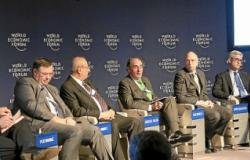
The economic and financial crisis of 2007–09 uncovered serious deficiencies in the oversight of the global economy, some of which came to light quickly and induced a concerted response by national authorities and multilateral institutions. Foremost among them was the need for appropriate regulation of financial institutions and oversight of derivative financial instruments. In this area, the G20 led a response that is still underway. Meanwhile, new regional entities emerged to challenge the existing multilateral order built around the IMF, the World Bank and the WTO – a development that has prompted further attempts to reform the current framework, including the creation of new institutions. These responses, however, have left major gaps in global financial governance. We argue that these gaps include: the balkanisation of oversight over global capital flows and current account imbalances; inadequate international burden sharing and policy coordination in response to financial crises; and a persistent inability of global institutions and national governments to ensure that the gains and losses from financial globalisation are equitably distributed across and within countries. Looking forward, the G20 and relevant multilateral institutions need to broaden the agenda to ensure that economic growth can become more resilient to shocks, more generally shared across economies, and more inclusive within countries.